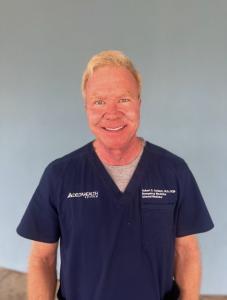Responding to Sudden Cardiac Arrest: Dr. Robert Corkern’s Expert Advice on Immediate Action
Responding to Sudden Cardiac Arrest: Dr. Robert Corkern’s Expert Advice on Immediate Action
Blog Article

Unexpected cardiac arrest (SCA) is a medical disaster that will hit without caution, often leading to death if not handled immediately. Dr Robert Corkern, a distinguished cardiovascular expert, offers an obvious and actionable manual for giving an answer to unexpected cardiac arrest. Each time a person's center abruptly stops whipping, swift and successful activity is crucial to truly save their life. Dr. Corkern's approach centers on quick treatment, including realizing the signs of SCA, calling for crisis support, doing CPR, and having an Computerized External Defibrillator (AED).
Realizing Unexpected Cardiac Charge
Dr. Corkern explains that knowing sudden cardiac charge is the first faltering step in providing quick care. Unlike a coronary attack, that might present with chest pain or disquiet, quick cardiac arrest occurs once the heart suddenly stops beating due to an electric malfunction. The individual may fail, eliminate mind, and end breathing or display abnormal breathing, such as gasping. It's important to notice that in the case of SCA, the patient might appear to be unresponsive and don't have any pulse. Quick action is needed to prevent critical consequences.
Demand Emergency Help Instantly
Time is of the essence when working with unexpected cardiac arrest. Dr. Corkern worries the importance of calling crisis solutions when possible. Quick medical intervention is vital to restore the heart's usual rhythm. Calling 911 or the local crisis number signals qualified experts who can provide sophisticated care, such as for example intubation, medication, or defibrillation, that may be essential to support the individuals condition. While awaiting medical responders to reach, every work to fix the average person should continue without delay.
Perform High-Quality CPR
Dr. Corkern emphasizes that performing top quality CPR (cardiopulmonary resuscitation) is a must in sustaining body flow to the brain and vital organs throughout quick cardiac arrest. If anyone is unresponsive and perhaps not breathing, start CPR immediately. Dr. Corkern proposes chest compressions at a rate of 100-120 per minute, moving hard and quickly at a depth of at least two inches. After each 30 compressions, supply two rescue breaths, ensuring that the airway is open. If you're not been trained in providing rescue breaths, performing hands-only CPR (continuous chest compressions) is still very effective.
Use an Computerized External Defibrillator (AED)
An Automated Additional Defibrillator (AED) is really a lightweight unit that can deliver an electric shock to the center to replace their standard rhythm. Dr. Corkern stresses that an AED is one of the most important tools for treating quick cardiac arrest. If one is available, it must be applied the moment possible. AEDs are designed to be user-friendly, with step-by-step style recommendations that manual the consumer through the process. After the AED is attached to the individual, it will analyze their center flow and, if required, deliver a surprise to the center to potentially system standard electric activity.
Continue steadily to Check the Person's Problem
Even with initiating CPR and utilizing an AED, Dr. Corkern suggests that the person's issue be carefully monitored till support arrives. Continue doing CPR if required, and watch on their breathing, heart, and over all response. If the person regains consciousness and begins breathing usually, put them in the healing place (lying on their side making use of their mind moved back) to make certain their airway remains clear. If their center stops again, carry on CPR until medical responders arrive or the individual reveals signals of life.
6. Follow-Up and Post-Emergency Attention
After emergency responders occur, they'll dominate and offer sophisticated attention, such as advanced airway management, intravenous medicines, and stabilization. Dr. Corkern recommends that those that endure an immediate cardiac arrest event obtain a complete medical evaluation to determine the cause of the charge and begin therapy to stop potential incidents. This could include lifestyle changes, drugs, or, in some cases, the implantation of a defibrillator to regulate center rhythms.
To conclude, unexpected cardiac arrest is just a medical crisis that needs immediate and definitive action. Dr Robert Corkern Mississippi's approach highlights realizing the signs of SCA, calling emergency services, doing CPR, having an AED, and continuous to monitor the individual's condition. By subsequent these steps, you can boost the chances of success in a cardiac emergency, and probably save a life. Dr. Corkern's assistance is an essential reference in ensuring a quick, powerful response to sudden cardiac arrest.
Report this page